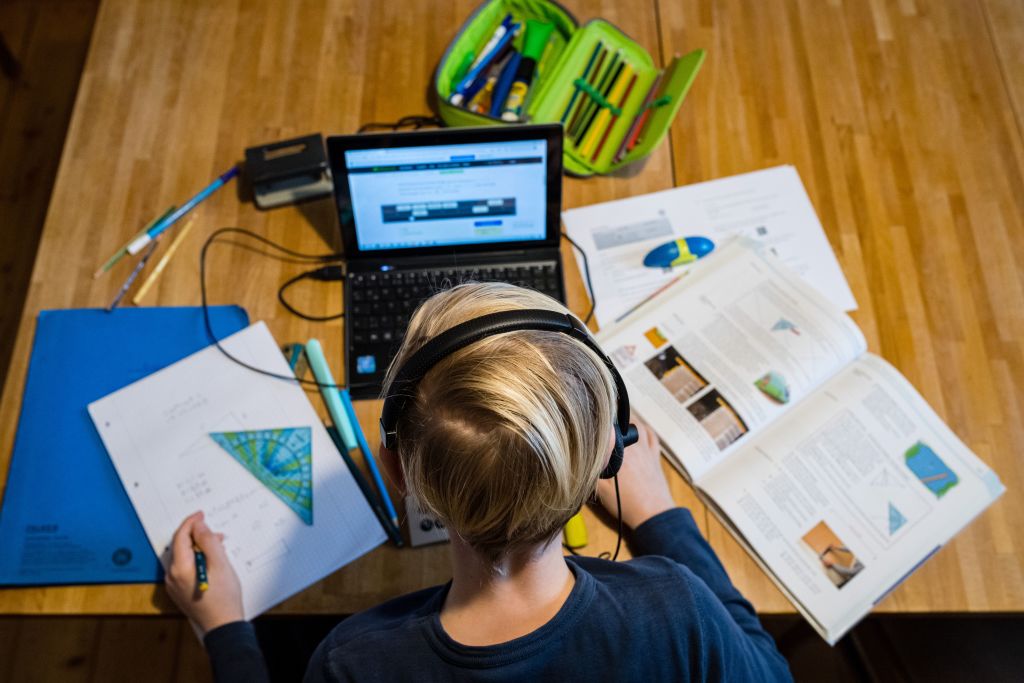Schools are a relatively new phenomena in human history. In Britain, they expanded in the 19th century and early 20th century in step with industrialisation and urbanisation, but in many places in the world, what little education the young receive occurs at home.
The assumption most share, not unreasonably, is that where there are schools to attend, parents should send their children to them so they can avail themselves of the opportunities for academic learning, for socialisation and working through what they might do after they leave with the rest of their lives.
Covid gave an enormous boost to homeschooling
The number of children being home-schooled in the last hundred years in Britain has been relatively low and stable, restricted in the main to parents who want a particular style of religious education for their children (evangelical Christianity, for example) or where there are personal difficulties deterring the young attending school.
We might be surprised, then, to learn that the numbers being educated at home have doubled in the last year, with over 65,000 children transferring to home-schooling. It’s caught the attention of Dame Rachel de Souza, the Children’s Commissioner for England, who in an earlier incarnation had been one of Britain’s most effective and respected head teachers. ‘I think it’s shocking to see how many have been home educated because I know so many of them are not doing it because they want to’, she said: ‘I’m deeply, deeply concerned. I think this is forced home education.’
A concern is that those being home-schooled are disproportionately children with special education needs, those with behavioural problems at risk of being excluded, and those from the poorest backgrounds. De Souza thinks that, unlike cases where parents have made a conscious choice and are investing enormous personal time and energy into providing proper schooling, many are being home-schooled because their experience at school is inadequate. Increasingly, self-motivated students are finding that AI technology is able to give them as good if not better informed and more personalised teaching and assessment than at school. ‘My daughter is making more progress on her physics A-level using AI than she is in chemistry and maths classes at her sixth form college’, a father told me last month.
Many home-schooling parents are passionate advocates of the educational value over traditional schooling, though evidence is not conclusive about the overall impact, still less so the effect on young people’s social and emotional development. Some home-educating parents I know compensate by organising regular social events and activities with other home-schooled children, and enrolling them in cultural and sporting groups. But my sense is that only a minority benefit in this way.
Covid gave an enormous boost in Britain and worldwide to home-schooling. Many children and families found they liked the experience, and determined to maintain it. I can see the trend only continuing in the future, facilitated by AI and digital technologies which are improving by the week.
The education system is partly to blame for this loss of confidence in the efficacy of schools. Ask any head or teacher in a state school how their own performance, and that of their students is assessed, and they will reply by test and exams results. These are a sufficient, but not a necessary condition for a good school. Arts, sport, character-building activities and joy have all been sacrificed over the years on the altar of exam success, ignoring that the fact that employers want to see breadth and social skills, teamwork and creativity, from those they will be employing.
Add to this the 20 per cent of young people who are reported to be ‘persistently absent’ from school, who find it boring, irrelevant or unpleasant because of intimidation from other pupils. It is a serious issue for Education Secretary Bridget Phillipson to tackle. Schools have to be more stimulating, challenging and indeed happy places for our young people.
Remember that it was a technological revolution, industrialisation, that ended home-schooling originally. It could be another technological revolution, AI, that could spell the end of schooling for all. Is the writing on the wall?







Comments